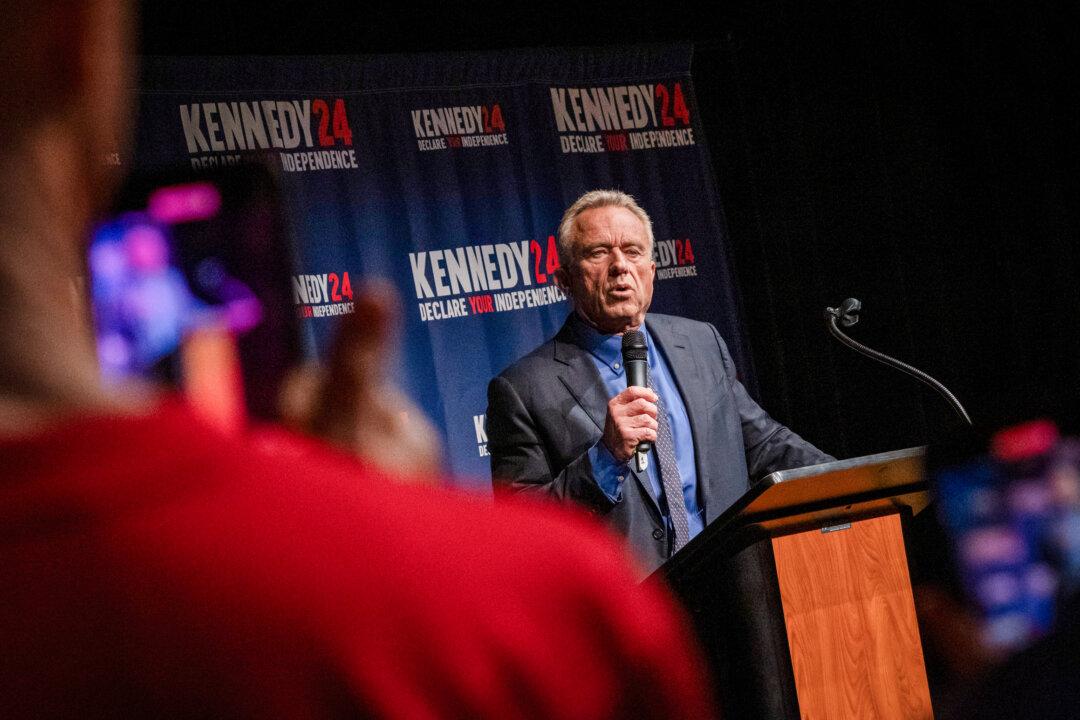After the Department of Homeland Security (DHS) rejected his plea for Secret Service protection for a third time, 2024 independent presidential candidate Robert F. Kennedy Jr. called the decision a political move and “weaponization of government” against candidates seeking to unseat President Joe Biden.
Mr. Kennedy is the son of Sen. Robert F. Kennedy, who was fatally shot in 1968 after giving a presidential primary campaign speech in Los Angeles, and the nephew of President John F. Kennedy, who was assassinated in Dallas in 1963 as he rode in a presidential motorcade.





